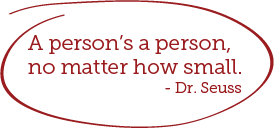I believe the evaluation process is much more than numbers and data collected as part of a series of tests administered. My goal is to understand a child or adolescent’s neurocognitive strengths and weaknesses by integrating the past, the present, and the future. I need to understand the child’s past, which includes developmental, medical, social, and educational history and how these factors affect the present symptom picture. Next, I have to evaluate where the child is currently with respect to his/her learning and behavior. Finally, I suggest where he/she is going based on knowledge of brain development and the natural course of learning and attentional problems. In this way, I strive to understand the development of the complete child rather than focusing only on discrete pieces of his/her development.
A significant component of assessment is that it is dynamic and interactive; a process by which a relationship evolves. This is why I am a firm proponent of two days, not one, of testing. I am committed to providing additional insight and guidance to enhance your ability to work with your child, their school, and outside treatment providers. When we understand the complete child, we can treat their problems in a more focused and efficient way.
As a mother myself, I understand the challenges of parenting. I am sensitive to the daunting nature of the evaluative process and am particular in how I speak to parents and children about test results. I will be reasonably accessible during and after the evaluation is complete. Questions are always welcome and I take pride in ensuring that my findings are understood and put to good use.

